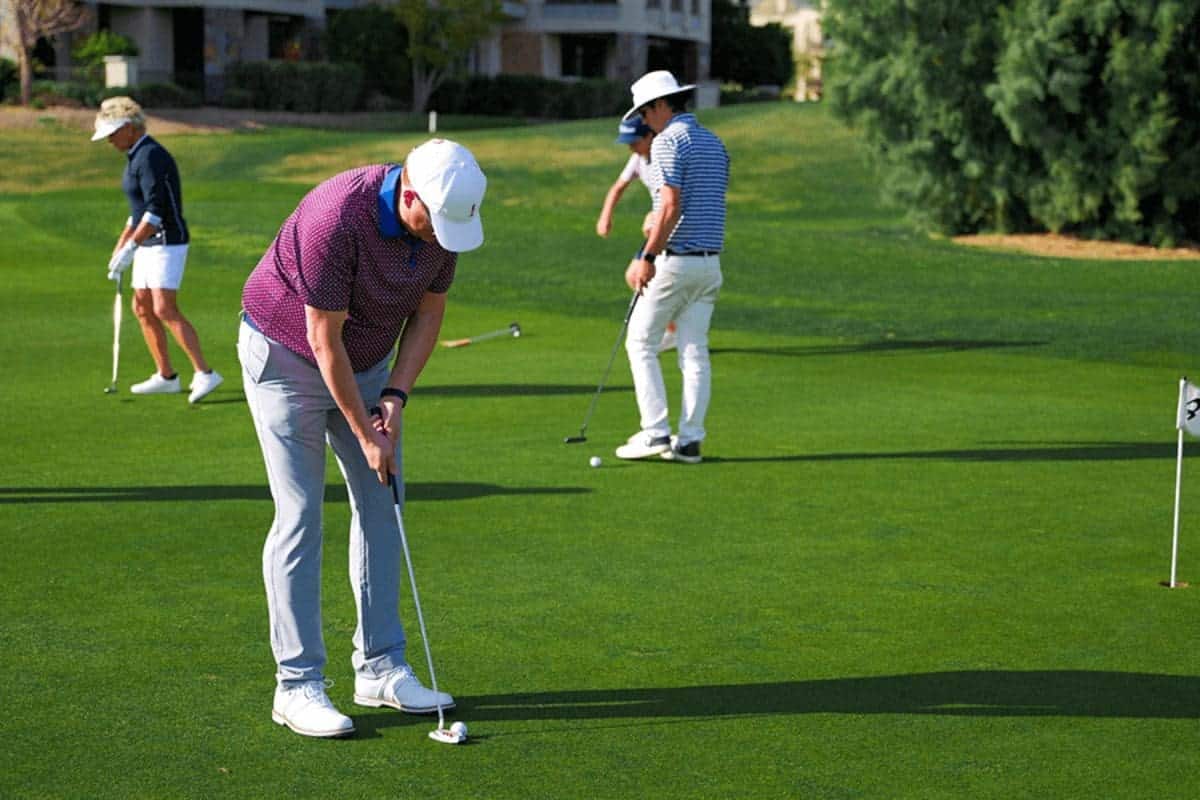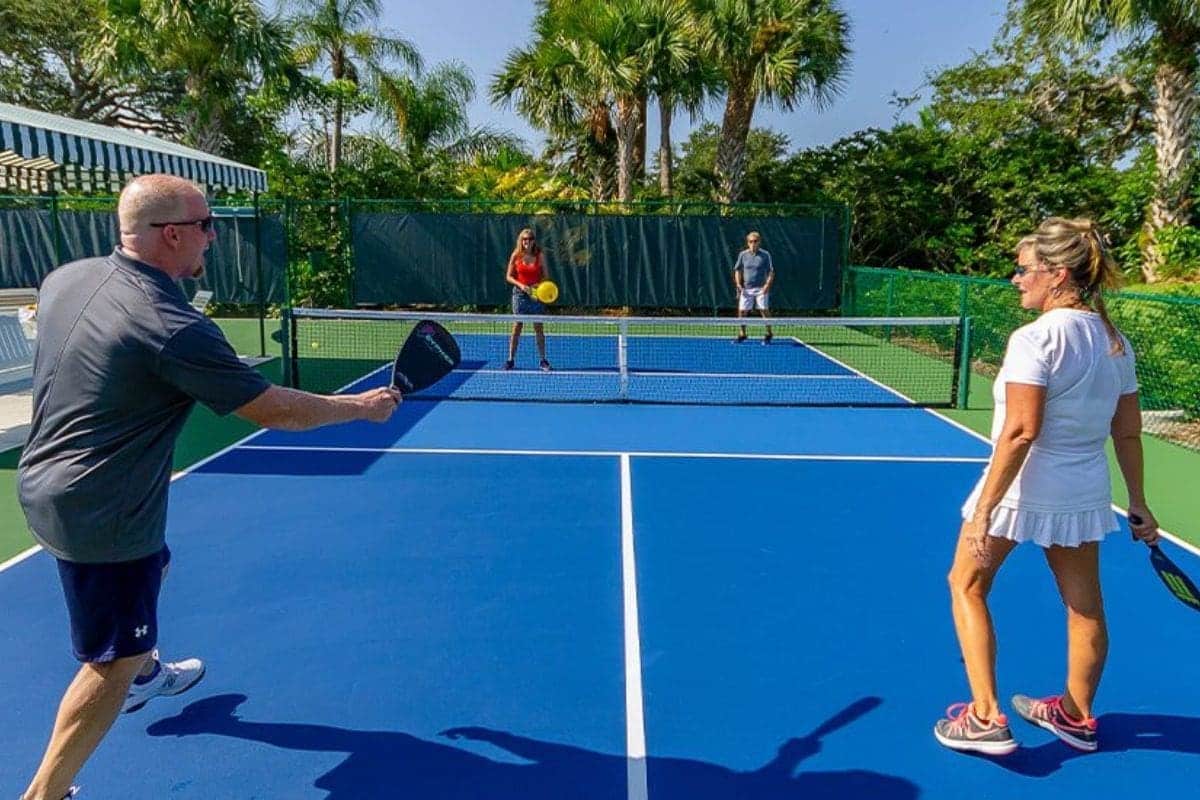Pickleball VS Golf: As golf has long served as the quintessential backdrop for business deals and client meetings, a new contender is making waves: pickleball. What was once a niche pastime is quickly becoming the preferred venue for corporate gatherings, and it’s easy to see why. In an era where efficiency and inclusivity reign supreme, pickleball is stepping in to transform how professionals network and build relationships.
A Game for Everyone
The allure of pickleball lies in its accessibility. For those who have never swung a golf club, the thought of spending an entire day trying to keep up with seasoned golfers can be daunting. Imagine being invited to a golf course, where precision is key and the stakes often feel impossibly high. Colin Hebson, a real estate broker from Chicago, clearly describes the pressure that accompanies the golf course experience: “If you’ve never golfed before and I invite you on the golf course to network, it’s almost impossible to keep up.” In contrast, pickleball offers a refreshing alternative.

With simple rules and a shorter learning curve, newcomers can grasp the game in just ten minutes. “I can take someone onto the pickleball court who has never touched a paddle before, and I can show them how to play,” Colin Hebson says. “They would have a good time right away.”
Cost-Effective and Efficient
Time is money, and pickleball is proving to be a far more efficient use of both. Corporate outings that traditionally took half a day can now wrap up in under two hours. For a fraction of the cost—around $80 for two hours of court time compared to the $600 to $700 typically spent on golf outings—companies are finding that pickleball not only saves money but also maximizes engagement.
Mathew Norman, senior director of events at Crush Yard in South Carolina, highlights the financial advantages: “Everyone involved spends more time with each other under one roof, and the event time is a max of three hours instead of five.” This streamlined approach is particularly appealing for companies wanting to ensure their staff can remain productive throughout the day.
As corporate margins continue to tighten, more companies are opting for pickleball over traditional golf outings. “This year, we’ve already put on ten events for companies that normally do golf,” Mathew Norman adds. The efficiency and affordability of pickleball have led to a surge in corporate bookings, with some clubs reporting a tripling of inquiries since 2021.

The Diversity Factor
Another significant advantage of pickleball is its growing appeal across diverse demographics. While golf continues to struggle with representation—74% of golfers are still men and 78% are white—pickleball is attracting a broader audience. Executives at a marketing company in Chicago recently opted for a pickleball tournament, hoping to engage employees who typically shy away from golf. Richard Green, co-founder of SPF Chicago, noted that many firms are pivoting to this sport to foster more inclusive environments. “They saw pickleball as a way of reaching out to get more engagement out of employees who don’t like to golf,” he explains.
Minneapolis-based life coach Jasna Burza further emphasizes this point, sharing her experiences with clients. When she realized that her coaching sessions could benefit from a more relaxed environment, she began inviting clients to play pickleball. “A lot of my women clients say, ‘I have kids, I don’t have time to spend seven hours on the course,’” she notes. This shift has also transformed her relationships with golfing clients, who appreciate the newfound informality. “There are no pretensions. You see them miss a shot, and there’s so much vulnerability on the court,” Jasna Burza says.
A Casual Atmosphere
Pickleball’s inherent casualness sets it apart from the more serious undertones often associated with golf. The laid-back atmosphere fosters camaraderie among players, making it easier to build genuine relationships. “What I love is that you see adult men and women engaging in trash talk,” Jasna Burza observes. “People are competitive, but it’s not as serious as golf.” This light-hearted competition creates an engaging environment where business discussions can unfold naturally without the pressure of formality.
While golf certainly has its merits, the formality can create barriers that hinder authentic connections. The tension on the golf course often leads to a more guarded interaction, whereas the pickleball court encourages openness and interaction. Even lawyers, bankers, and realtors have embraced this new venue, finding it ideal for expanding their professional circles.
The Future of Networking
While golf is unlikely to disappear entirely from the corporate landscape, it’s clear that pickleball is carving out a significant niche. The National Golf Foundation recently reported that the number of on-course golfers has increased for six straight years, suggesting that golf retains its popularity. Yet, even with these positive trends, the traditional golf demographic presents challenges for firms seeking to engage a more diverse clientele. With the 74% male and 78% white demographic, many companies are recognizing the need to shift to more inclusive alternatives, prompting them to host pickleball tournaments to tap into broader networks.
As companies seek ways to engage clients and employees in a more inclusive, cost-effective manner, pickleball stands poised to take the lead. For many professionals, the choice between golf and pickleball is becoming increasingly clear. Pickleball is not just a passing trend; it is redefining how business relationships are formed and nurtured in today’s corporate world. In a landscape where the traditional business luncheon on the golf course is being challenged, it seems that the pickleball court might just be the new meeting room for corporate America.

News in Brief: Pickleball VS Golf
Pickleball is emerging as a popular alternative to golf for corporate networking and gatherings. Its accessibility allows newcomers to learn quickly, making it less intimidating than golf. Corporate events can be completed in under two hours for about $80, compared to $600-$700 for a golf outing, making pickleball both cost-effective and efficient. Additionally, the sport attracts a diverse demographic, building inclusivity among participants. The casual atmosphere encourages genuine interactions, often leading to more authentic business discussions. While golf remains a staple in corporate culture, pickleball’s rise reflects a shift towards more approachable, engaging, and efficient networking. As businesses seek new ways to connect, pickleball is set to redefine corporate relationships and gatherings in America.
ALSO READ: New Pickleball Facility Opens at Freedom Park in Greenwood
